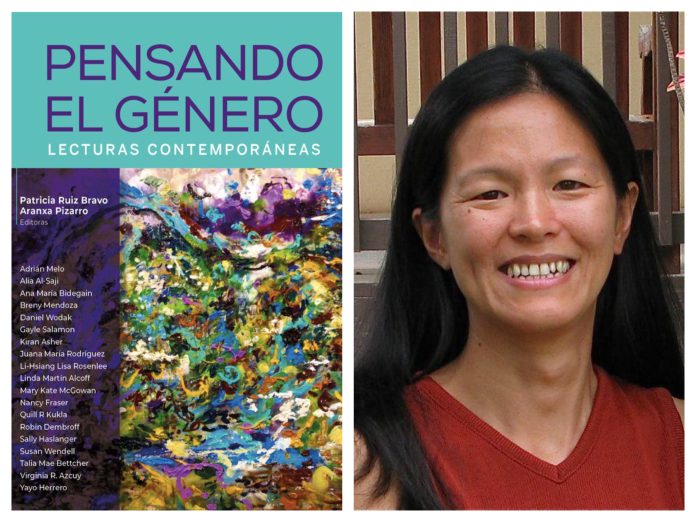A previously published book chapter by Dr. Li-Hsiang Lisa Rosenlee, professor of Philosophy at the University of Hawai‘i–West O‘ahu, has just been translated into Spanish in a new anthology.
“Pensando el Genero: Lecturas Contemporáneas” (“Thinking about Gender: Contemporary Readings”), an anthology published this year by Fondo Editorial de la Pontificia Universidad Católica del Perú, features 20 contemporary readings on the topic of gender from various disciplines and regions including well-known feminist scholars such as Sally Haslanger and Linda Martín Alcoff.
The book features a chapter written by Rosenlee and translated into Spanish titled “Una apropiación feminista del confucianismo.” The English version of Rosenlee’s book chapter, “A Feminist Appropriation of Confucianism,” was originally published in “Confucianism in Context: Classic Philosophy and Contemporary Issues, East Asian and Beyond” in 2010 by State University of New York Press.
“I am honored to be representing the Confucian tradition in such a prestigious collection of feminist scholarships now accessible to the Spanish speaking world,” Rosenlee said.
According to an excerpt from “Confucianism in Context,” in her chapter Rosenlee demonstrates the potential for a feminist critique arising within the Confucian tradition itself, not imposed from the outside as a harbinger of westernization.
“Rosenlee resists both the Confucians who reject feminism as an intrusion of Western values as well as the Western feminists who reject Confucianism as irredeemably patriarchal,” according to the book. “These Western feminists fail to note that the forefathers of Western philosophy were often no less dismissive of women’s intellectual capabilities.”
“Confucianism in Context” continues, “In her feminist appropriation of Confucianism, Rosenlee preserves core Confucian values, especially those that emphasize social and familial roles, while showing that they need not be interpreted either hierarchically or strictly in terms of gender.”
